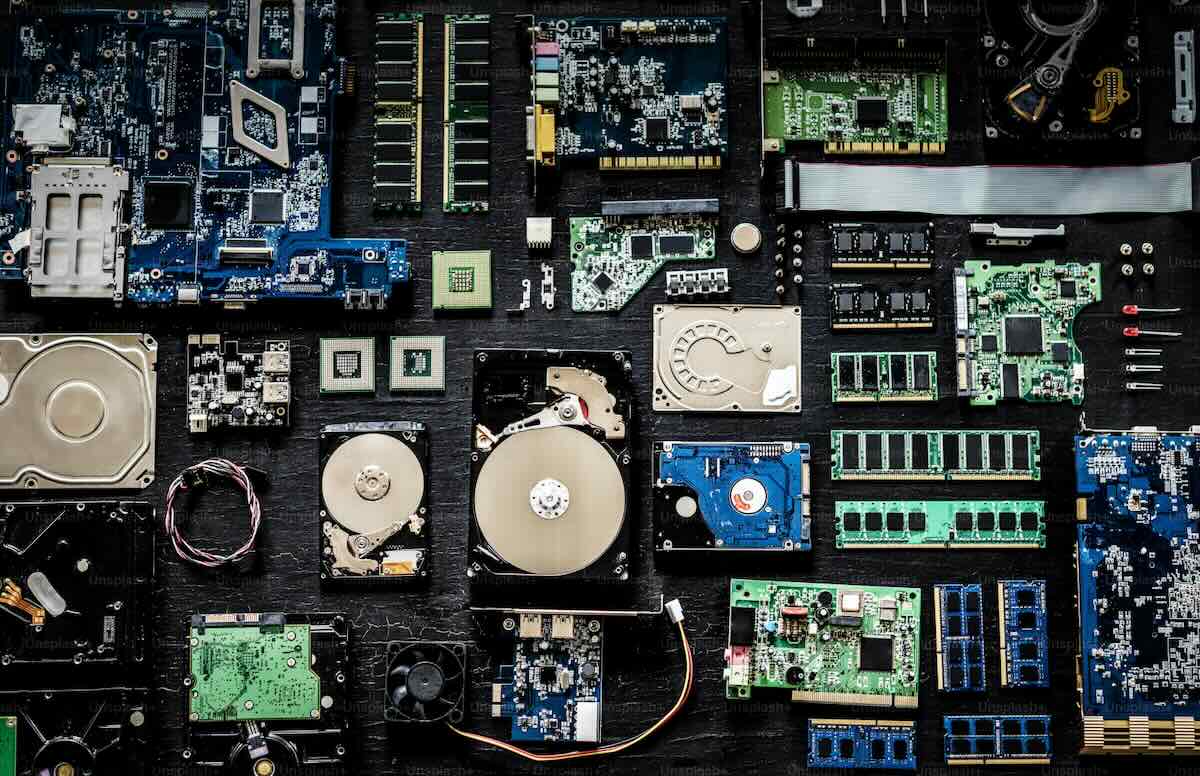Researchers have discovered a chemical-free method for recovering 99.9% of the gold from recycled electronic waste, or e-waste, then using the recovered gold to transform harmful carbon dioxide into useful organic materials.
Led by post-doctorate researcher Amin Zadehnazar, who works in the lab of Alireza Abbaspourrad, a professor of food chemistry and ingredient technology, the process offers a non-toxic method for recovering precious metals from waste material and cleaning the environment.
Organic Matrix Recovers 99.9% of the Gold from Electronic Waste
Specifically, Zadehnazar synthesized a set of organic materials known as covalent organic frameworks linked with vinyl, known for their ability to extract gold ions and nanoparticles found in electronic devices while ignoring plastic and other metals like nickel and copper. When the Cornell researcher applied his synthesized COFs to selected electronic waste materials, including circuit boards with higher amounts of gold than other discarded materials, he found the mix captured 99.9% of the gold and very little of the nickel and copper within the same e-waste.
According to Zadehnazar, whose work took place in the National Science Foundation-funded Cornell Center for Materials Research and the Cornell NMR facility, the COF’s ability to extract and trap gold ions in the matrix not only offers a method for recovering the valuable material but also creates a perfect catalyst for converting carbon dioxide into organic chemicals used in several industrial and commercial applications.
“We can then use the gold-loaded COFs to convert CO2 into useful chemicals,” the researcher explained in a statement. “By transforming CO2 into value-added materials, we not only reduce waste disposal demands, we also provide both environmental and practical benefits.”
“It’s kind of a win-win for the environment,” he added.
E-Waste Programs Have Faced Challenges Staying Green
Although several states in the U.S. have electronic waste recycling programs aimed at reducing their disposal in landfills while also recapturing the valuable materials found in the guts of old computers, wires, cell phones, and other electronic devices, most have found it difficult to extract that material in a safe and non-toxic way.
California’s e-waste program began over two decades ago and was initially successful at recovering highly toxic CRT TVs that preceded the flat-screen LEDs sold today. However, that program has faced critical cost overruns as out-of-state televisions are regularly recycled in California. A similar problem plagues the aluminum can recycling program in California, which routinely pays out more money than it takes in due to out-of-state cans recycled locally.
These programs’ efforts to recover precious metals from electronic waste have also faced environmental concerns due to the chemicals used. The process can also be very energy intensive, making a program designed to reduce the carbon footprint a net polluter.
Still, proponents of these programs argue that they are still much more cost-efficient than traditional gold ore mining. According to the Cornell research team, “It’s estimated that a ton of e-waste contains at least 10 times more gold than a ton of the ore from which gold is extracted.” They also argue that given the anticipated 80 million metric tons of e-waste by 2030, “it’s increasingly important to find ways to recover that precious metal.”
Based on his successful tests, Zadehnazar believes his COF-based process offers the first viable solution that works without these chemicals. It also provides a CO2 conversion, making it a key component of a truly environmentally friendly green electronic waste recycling program.
The study “Recycling e-waste into gold-loaded covalent organic framework catalysts for terminal alkyne carboxylation” was published in Nature Communications.
Christopher Plain is a Science Fiction and Fantasy novelist and Head Science Writer at The Debrief. Follow and connect with him on X, learn about his books at plainfiction.com, or email him directly at christopher@thedebrief.org.

